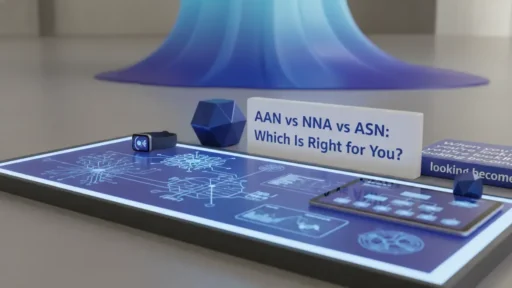Navigating the complexities of residency documentation can be daunting, especially when traditional proof isn’t available. An alternative residency affidavit serves as a valuable tool for individuals seeking to establish their residency status without conventional documents. This legal declaration provides a means to affirm a person’s residence based on personal knowledge and circumstances.
Understanding the importance of an alternative residency affidavit is crucial for various situations, from enrolling in schools to accessing government services. By offering a clear and concise explanation of one’s living situation, this affidavit can help bridge the gap when standard documentation falls short. For those in need of an alternative solution, knowing how to effectively utilize this affidavit can make all the difference in achieving their residency goals.
Understanding Alternative Residency Affidavit
An alternative residency affidavit serves as a vital tool for individuals lacking traditional residency documentation. This legal declaration affirms residency based on personal knowledge and specific circumstances.
Definition and Purpose
An alternative residency affidavit is a signed statement that asserts an individual’s residence in a specific location. This document can establish residency when conventional proof, such as utility bills or leases, isn’t available. It’s essential for situations where confirmation of residence is necessary, including enrolling in schools or qualifying for government services. By providing a clear record, it supports individuals in proving their residency status.
Common Uses and Applications
Alternative residency affidavits find application in various contexts, including:
- School Enrollment: Parents or guardians often use affidavits to enroll children in local schools when standard residency proof isn’t accessible.
- Government Services: Individuals may present affidavits to qualify for benefits or services that require proof of residency.
- Legal Proceedings: Affidavits can serve as supporting documents in court cases, where residence confirmation is pertinent.
- Voter Registration: When individuals lack conventional documents, affidavits can help establish residence for voting eligibility.
- License Applications: Affidavits may be necessary for securing driver’s licenses or other state-issued identification.
Each application emphasizes the affidavit’s role in confirming residency effectively and efficiently.
Benefits of Using an Alternative Residency Affidavit
An alternative residency affidavit offers several advantages when standard proof of residency is absent. Its utility spans various applications, providing a straightforward solution to residency verification.
Legal Recognition
An alternative residency affidavit holds legal significance, serving as an official declaration of an individual’s residence. Courts and government agencies often accept this document as credible evidence, which can facilitate processes such as securing public assistance benefits or confirming voter registration. Legal entities recognize the affidavit’s role in establishing one’s residency status, which simplifies interactions and enhances legitimacy in various formal procedures.
Simplifying Processes
Using an alternative residency affidavit simplifies many bureaucratic processes. Individuals can avoid lengthy documentation requests by submitting the affidavit for enrollment, applications, or services. The affidavit also accelerates the verification process, allowing quicker access to essential services like education and healthcare. By minimizing the need for extensive proof, it streamlines bureaucratic hurdles while ensuring that residency claims remain valid and recognized.
How to Create an Alternative Residency Affidavit
Creating an alternative residency affidavit involves following specific steps and including essential information. This document must be clear and concise to ensure acceptance by authorities.
Required Information
Include the following key pieces of information in the affidavit:
- Affiant’s Identification: Provide the full name, address, and date of birth of the individual affirming residency.
- Current Residency Address: State the complete address where the affiant resides.
- Duration of Residency: Specify how long the affiant has lived at the stated address.
- Statement of Truth: Include a clear declaration that the affiant is affirming their residency based on personal knowledge.
- Purpose of Affidavit: Detail the specific reason for creating the affidavit, such as enrolling in school or verifying eligibility for services.
- Signature and Date: Require the affiant’s signature along with the date of signing to validate the document.
Formatting Guidelines
Follow these formatting tips for clarity and professionalism:
- Title: Clearly label the document as “Alternative Residency Affidavit” at the top.
- Paragraph Structure: Use short, clear paragraphs to improve readability.
- Numbering: Number sections or bullet points for easy reference, especially when listing required information.
- Legal Language: Utilize formal language to convey seriousness and legality.
- Notarization: Consider having the affidavit notarized to enhance its credibility and acceptance.
By adhering to these requirements and formatting guidelines, individuals can create an effective alternative residency affidavit that meets the expectations of parties requiring proof of residency.
Potential Challenges and Considerations
Understanding challenges associated with alternative residency affidavits is essential for effective utilization. Key issues include misuse and variations in regulations across different states.
Misuse and Fraud
Misuse of alternative residency affidavits can lead to significant legal consequences. Individuals may submit false information to obtain benefits or services that they aren’t entitled to, resulting in criminal charges, fines, or loss of benefits. To mitigate this risk, authorities often implement verification processes. Accurate documentation and truthful statements are crucial to maintain the affidavit’s integrity and prevent fraud.
State-Specific Regulations
State-specific regulations influence the acceptance and requirements for alternative residency affidavits. Some states may require notarization, while others might mandate specific language or additional documentation. Understanding each state’s unique rules ensures compliance and enhances the affidavit’s validity. Individuals should consult local laws or legal professionals to verify requirements relevant to their location.
Discover the Power of BlueNotary:
Integrate your Business, Title Company, or Law Firm to Satisfy your Customers and Decrease Turnaround
Get a document Notarized/Sign-up
Join the Free Notary Training Facebook Group
Conclusion
The alternative residency affidavit serves as a crucial resource for individuals facing challenges with traditional residency documentation. Its ability to affirm residency based on personal knowledge allows for smoother access to essential services and opportunities.
By understanding the affidavit’s requirements and adhering to local regulations, individuals can effectively navigate bureaucratic processes. This not only simplifies obtaining necessary documentation but also reinforces the importance of honesty and accuracy in residency claims.
Utilizing an alternative residency affidavit can empower individuals to overcome obstacles and secure their rights and benefits in various aspects of life.
Frequently Asked Questions
What is an alternative residency affidavit?
An alternative residency affidavit is a signed legal declaration that confirms an individual’s residence, primarily used when traditional documents like utility bills are unavailable. It serves as a credible statement asserting where someone lives and can help with school enrollment, accessing government services, and other legal matters.
Why do I need an alternative residency affidavit?
You may need an alternative residency affidavit when you lack conventional proof of residency, like a lease or utility bill. It helps you qualify for essential services, enroll children in schools, and secure government benefits by providing officially recognized evidence of your residence.
How do I create an alternative residency affidavit?
To create an alternative residency affidavit, include the affiant’s identification, current address, duration of residency, a statement of truth, and purpose of the affidavit. Make sure to sign and date it, and consider notarization for added credibility.
What are the risks associated with alternative residency affidavits?
Filing a false alternative residency affidavit can lead to serious legal consequences, such as criminal charges or loss of benefits. It’s essential to provide accurate information, as it can be subject to verification by authorities.
Are there specific legal requirements for residency affidavits?
Yes, requirements for residency affidavits may vary by state. It’s advisable to consult local laws or a legal professional to understand the specific regulations and enhance the validity of your affidavit.








